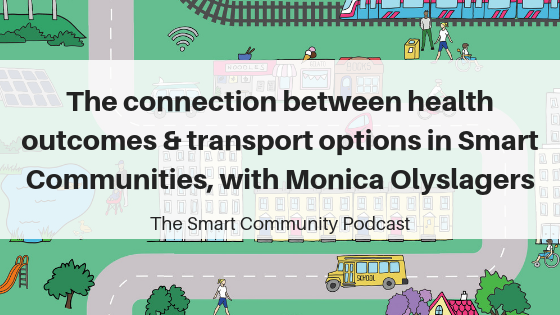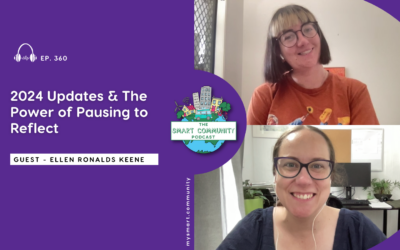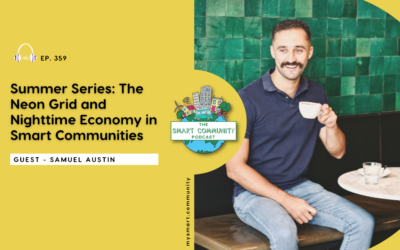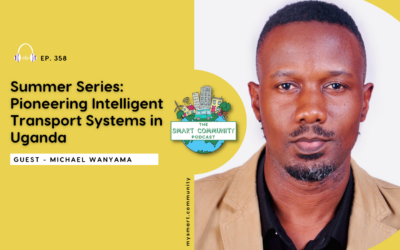In this episode, I have a fascinating conversation with Monica Olyslagers, the Safe Cities Specialist at iRAP, the International Road Assessment Programme. Monica tells us how moving to Ho Chi Min City at the age of 12 sparked her interest in Cities, and why she is so passionate about cycling and the involvement of women in the transport sector. Monica explains a bit about the work IRAP does in assessing star ratings for road safety for different road user groups. For the past four years, Monica lived in Beijing, China at a time when the city experienced its very own “bicycle revolution” driven by new technologies and we discuss some of the projects she’s worked on there. Monica and I also cover the enormous challenge of improving road safety, and how improving health outcomes in the community is inextricably linked with improving transport options. We finish our conversation discussing the need to question emerging technology trends in light of what kind of world we actually want to live in in the future. As always I hope you enjoyed listening to this episode as much as I enjoyed making it.
Listen here:
What we cover in this episode:
- How moving to Ho Chi Min City at the age of 12 sparked Monica’s interest in cities
- Monica’s passion for cycling and the important of women in transport
- The future of transport services and how it has to change to meet the changing needs of all people
- The iRAP star rating system on road safety for different road user groups and the enormous challenge of improving road safety globally
- How improving health outcomes in the community is inextricably linked with improving transport options
- Why Monica believes citizen health and wellbeing is central to the Smart Community concept
- The value for a City or government having a “Smart City” arm to facilitate integration across disciplines
- The rapid change and momentum in ride sharing and bike sharing in China
- Some of the projects Monica has worked on in her time at IRAP working out of Beijing
- The benefits of sharing the outcomes and learnings from new projects with others in different cities or regions or countries
- Why we should be questioning new technology in light of what kind of world we actually want to have in the future
Quotes:
“The transport sector in Australia has been traditionally very male dominated…And I really do believe that women have quite a fundamentally different view to how transport works for them, like what their priorities are, what the choices are….And working in the road safety space, now I’m very conscious that you’ve got to have more female voices in there to help shape what transport looks like in the future.”
“1.25 million lives every year are lost to road crashes [and] 50% of the death rate, on average, in cities is pedestrians. But in lower-middle income countries that figure can be up to 80 in 90%. We’re really facing this enormous challenge…trying to deal with what is a very, very big road safety issue around the world.”
“The more we realise that cities ultimately are going to have to serve as healthy and equitable places for people to live [sustainably] long term, and that people’s health and wellbeing is central to that, [the better]. That is where we we need to be heading.”
“Everywhere is different. It doesn’t matter what kind of technology or what innovation happens. No two things are the same. And it’s it’s actually been a really exciting experience to go around the world and see how cities all over the place are doing things and going forward, but it’s all in a slightly different way.”
“The ability to talk between cities, to share ideas, and to communicate now, I think it’s doing a lot for people and the sector in itself. For the first time, as a professional in this field, it’s no longer just the people you know, within your city or your region, who are working on similar things. You have the ability to then connect across the world!”
“The technology is certainly moving in that direction [of AVs], is it something that we necessarily want? Is a car without a driver any better than a car with a driver, ultimately? And what happens when instead of cars spending 90% of their life parked somewhere that they’re suddenly all the roads?”
Links
Bikeable City MasterClass in Denmark
Chinese ride-sharing app DiDi Monica mentioned
Chinese bike-shareing app Mobike
Connect:
Connect with Monica on LinkedIn
Connect with me via email: hello@mysmart.community
Connect with My Smart Community via LinkedIn or Twitter and watch on YouTube
Podcast Production by Perk Digital






0 Comments
Trackbacks/Pingbacks